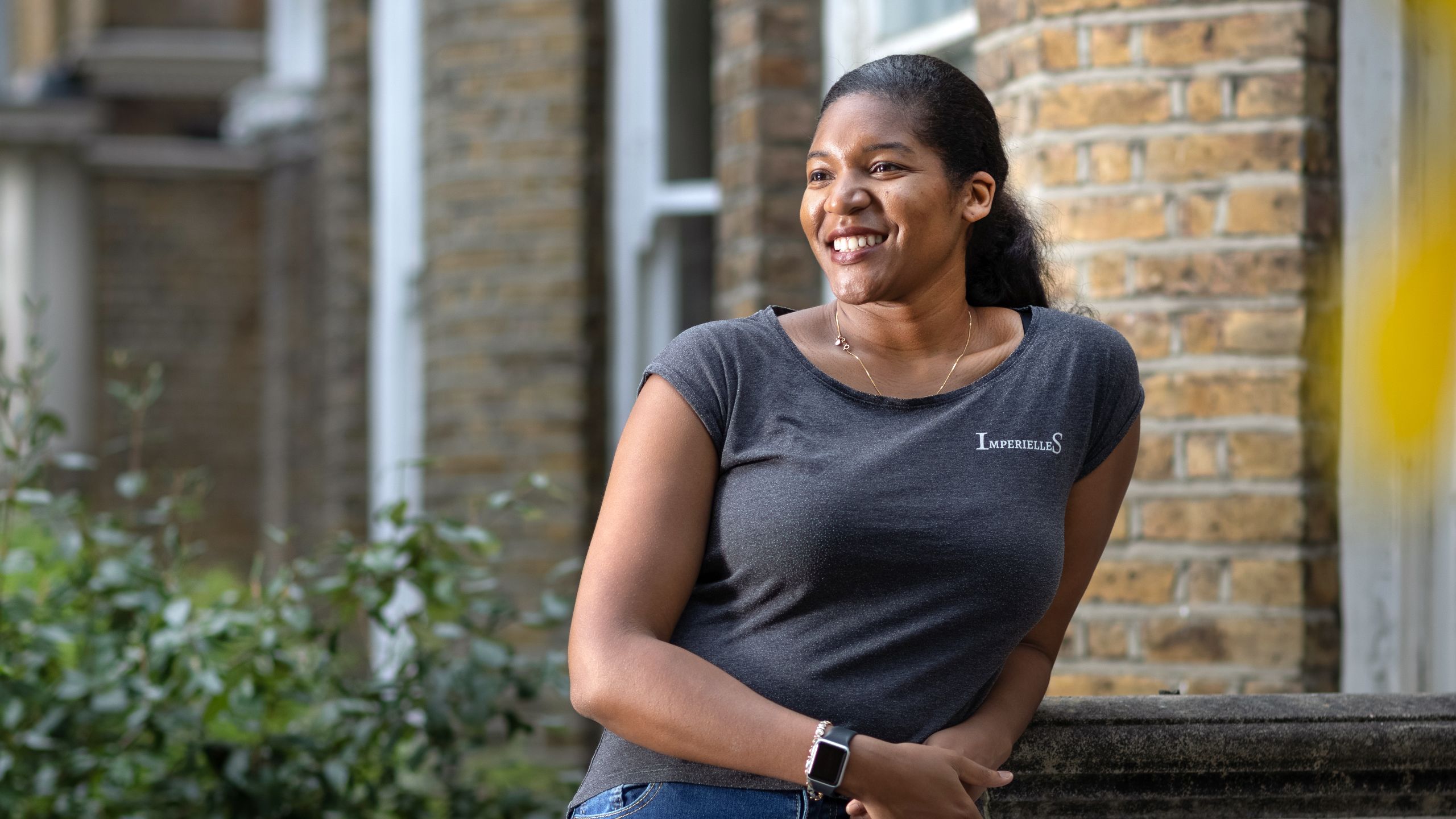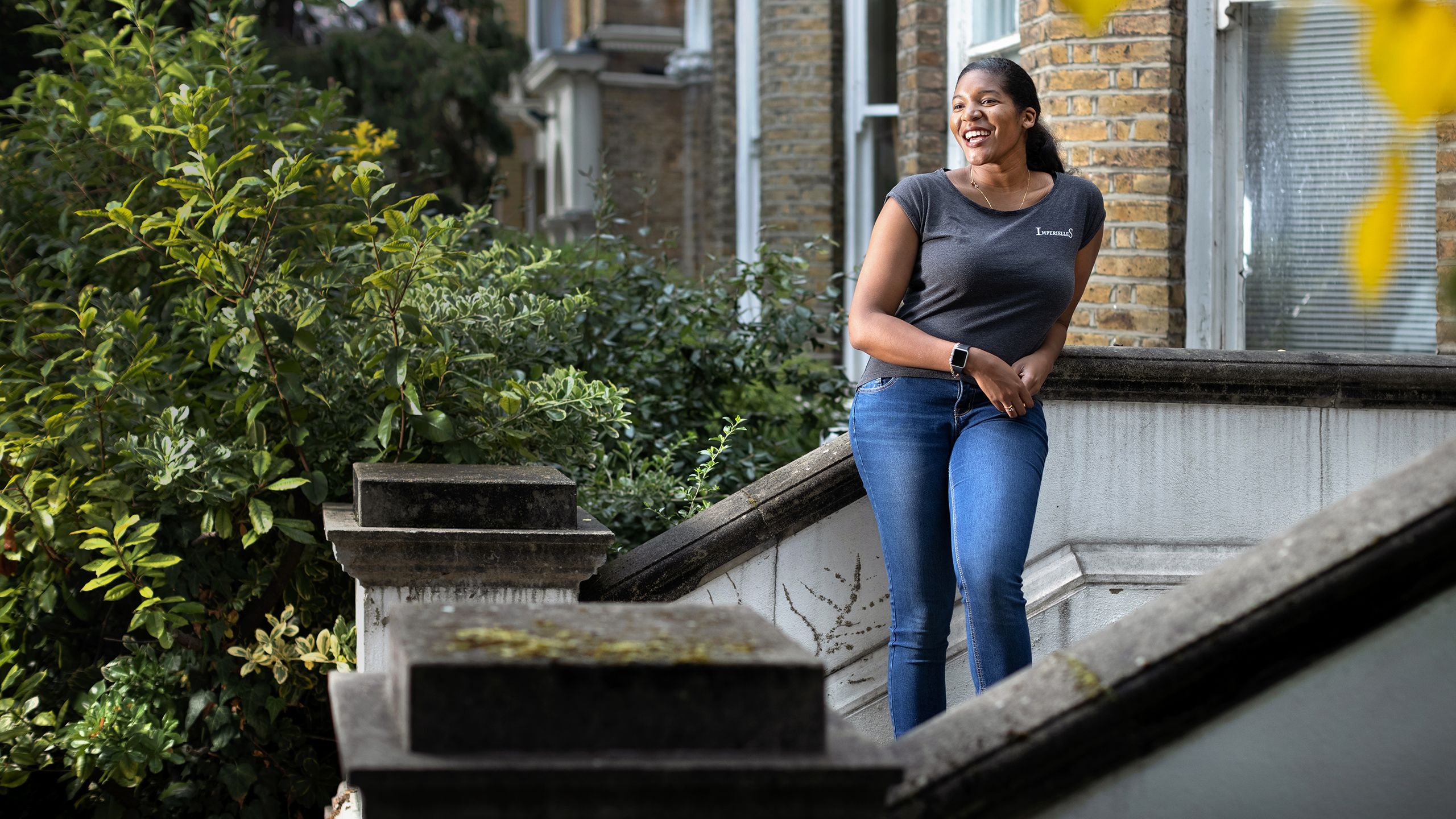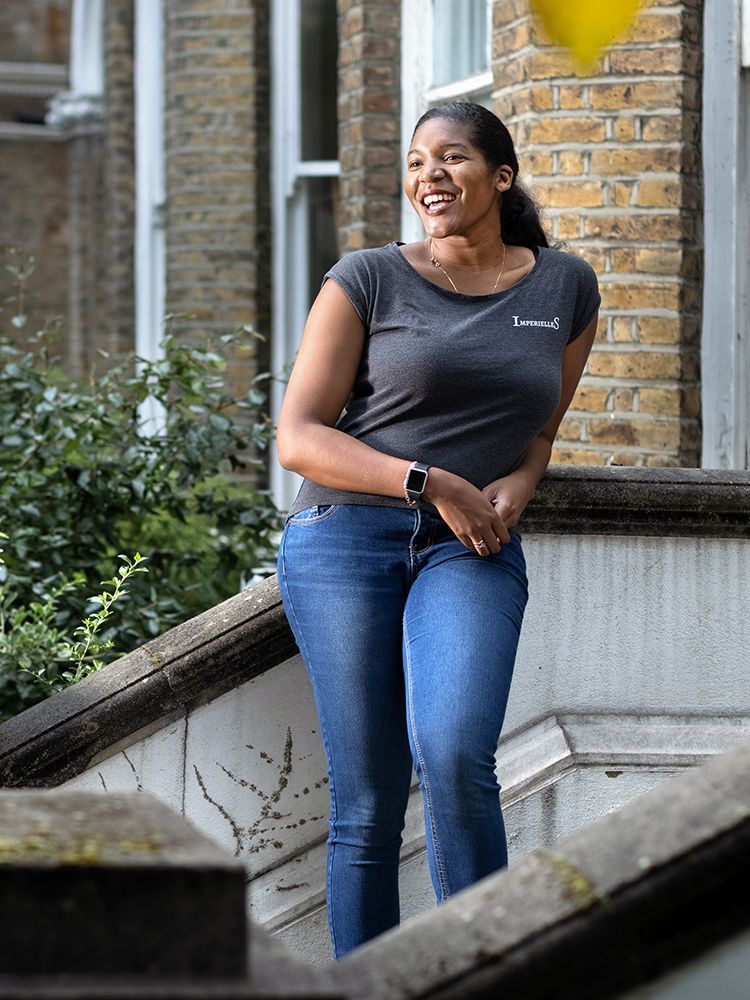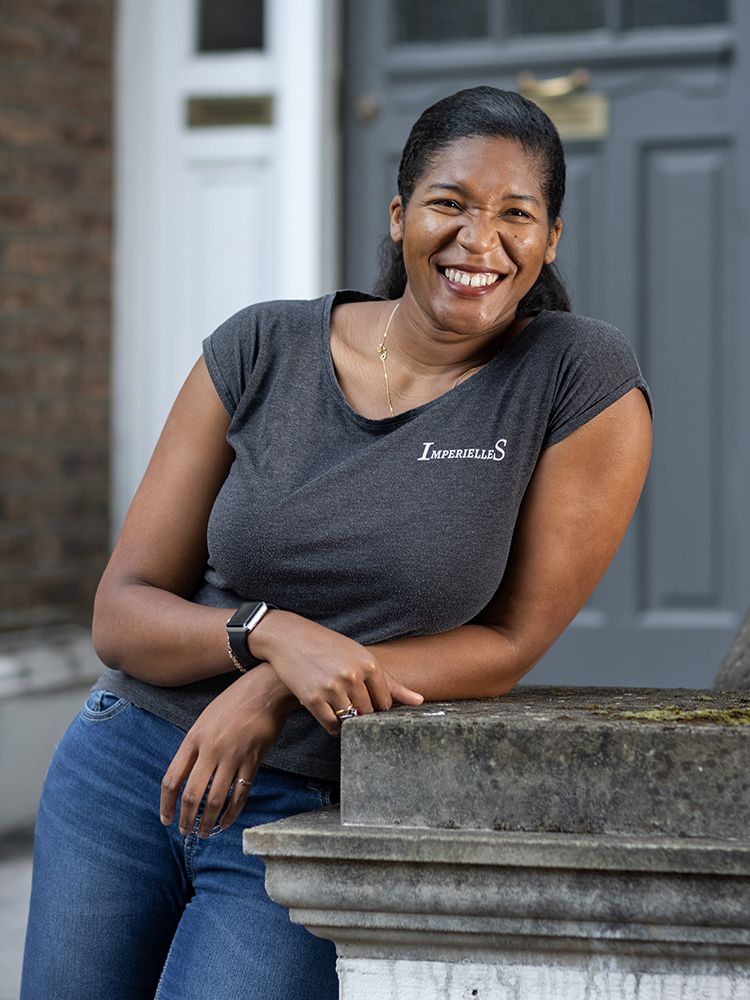"If I change my hairstyle even slightly, people will comment on it or want to touch it"

Alicia Gayle
Research Postgraduate, National Heart & Lung Institute and Epidemiologist at AstraZeneca
Learning from others
"Born in Surrey to Jamaican parents, I had a lovely, integrated upbringing, combining shared British values with cultural influence from my family in the UK, Jamaica and the United States.
For anyone who wants to experience some of the customs and culture, I would recommend attending Notting Hill Carnival as this is probably the UK’s biggest celebration of Caribbean culture, and is a great opportunity for people to experience the food, music and relaxed mentality of the Caribbean. It’s a real break from the London rush.
I’m part of a research group that’s incredibly diverse in terms of country of origin, language and professional experience.
Personally, I feel incredibly comfortable at Imperial. I’m part of a research group that’s incredibly diverse in terms of country of origin, language and professional experience. Based on skin colour alone we’re not that diverse, but most continents are represented and that’s interesting to me.
It enables me to humble myself and learn about different customs and other people’s experiences. In my Master’s cohort, I wasn’t the only Black woman in the room, and I was quite surprised by that! Public health draws in a broad group of people and I absolutely loved it. I had a great year!
Creating awareness and recognition
I’m very aware that my view is incredibly biased as I’ve had such a good experience at Imperial, but there are of course negatives. They’re mostly small and unintentional, such as comments or reactions from people.
One part of my culture not often understood is how we express ourselves through our hair. Growing up, there were occasions I was told to change my hairstyle because it wasn’t 'appropriate’ for school. While society is becoming more open-minded about what’s considered 'appropriate’ hair for school and the workplace, I still find if I change my hairstyle even slightly, people will comment on it or want to touch it, or there’s a whole conversation about the versatility of my hair — but there’s not necessarily a long conversation for my counterparts.
One part of my culture not often understood is how we express ourselves through our hair.
There are also some people outside of the university who are very surprised when I say I’m at Imperial and do science as personal prejudices remain an ongoing issue. While the College can’t tackle this in its entirety, it is doing certain things. For example, I recently joined a Wikithon which focused on creating Wikipedia pages for women scientists to increase their visibility. How are women supposed to get recognition if, in the most basic online search, you can’t find them? That kind of activity creates awareness and recognition of those who’ve been overlooked, which I think is a key issue.
The problem with ‘ethnic outreach’
As a STEM ambassador I have a responsibility to promote STEM career paths. There are already several outreach initiatives at Imperial, but to maximise these, we need more engaging speakers who are from diverse backgrounds and will draw the right audiences. Inspire kids already studying science from GCSE through to undergraduate level.
Labelling it as an ‘ethnic outreach’ programme will turn some people off, including me! Focus on getting good quality engagement to inspire interest in pursuing education and careers in science because that’s what people come to Imperial for."

Alicia shares her story as part of Shifting the Lens: a celebration of cultural diversity at Imperial
This interview was edited by Cecily Sheppard and photographed by Thomas Angus.

